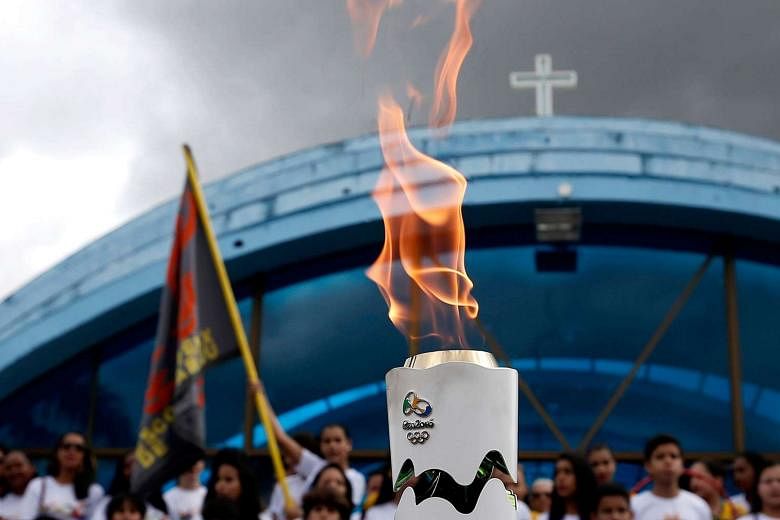The flame is flickering still. Never before have the Olympics been so fogbound as in 2016.
With a little over two months to go, the uncertainty deepens with no fewer than 150 public health experts and medical scientists from around the world recommending a postponement in view of the Zika pandemic in Brazil.
The fineprint of the joint letter addressed to the World Health Organisation makes it obvious that the potentially mortal hazard to public health has transcended the country's political turmoil.
The message to the UN entity is couched in the warning that to go ahead with the greatest sporting extravaganza would be "unethical".
It may not be easy for the Olympic authorities to readily come to a decision on postponement especially after WHO's green light.
Not least because in the event of deferment, the economic costs would be enormous not merely for the Brazilian economy but also for the athletes and sporting federations who are gearing up for the event which comes but once in four years.
The cost-benefit analysis is yet to be calibrated and the crucial question is: how huge is the potential risk to health and how big is the likely cost?
What is the number of people whose health could suffer, or whose lives could be blighted, by holding the Olympics as per the existing timetable?
And what is the likely expense of postponing the Games?
Zika is a virus that is strongly believed to cause babies to be born with abnormally small heads and may also cause a fatal neurological syndrome in adults.
Well might the sport enthusiasts wonder with a tinge of cynicism whether one can weigh such serious health risks against money?
The short point must be that if human risk has to be weighed against money, so be it.
Any decision for or against postponement ought ideally to be a consensus reached by the participating countries, by WHO, and also of course by the rather fragile government in Brasilia.
It is much too palpable that Zika is far from being contained even six months after the first reports on the outbreak.
It isn't a question of trade-off between the Games and postponement. Which explains why the professionals, in their letter to WHO, have raised the question of ethics.
Much as the world looks forward to the Olympics, the only "ethical" consideration should be to potential Zika victims.
And it would be unethical to weigh human life against money.
There is no instant answer, let alone a cut-and-paste formula.
The authorities will have to to face up to and have the courage to estimate costs and benefits when reaching their decision.
A carefully crafted process can alone protect public interest.
The Statesman is a member of The Straits Times media partner Asia News Network, an alliance of 22 newspapers.

